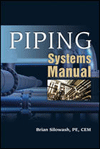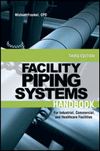April 2, 2008 ― ACCA, HARDI Fight Flawed City Energy Codes
The Air Conditioning Contractors of America hosted a second “town hall” meeting for Albuquerque, N.M., HVAC contractors and distributors in as many months March 26 to discuss the latest news and industry efforts to work with the city to rectify its controversial Energy Conservation Codes signed into law in January.
Eight wholesale distributor members of the Heating, Airconditioning and Refrigeration Distributors International that supply the Albuquerque market ― Doc Savage Supply, Contractors Heating & Supply, Albuquerque Winair, Hercules Industries, Burke Engineering, Johnstone Supply, Perry Supply, and Gorman Industries ― sponsored the meeting, and have been prime drivers of industry’s efforts to address the troublesome codes.
The Albuquerque Energy Codes attempt to raise HVAC equipment standards within the city limits on all new and retrofit commercial and residential applications to 15 SEER air-conditioning and 90 percent AFUE equipment. This violates the preemption doctrine that restricts states and local governments from setting energy efficiency standards in excess of the federal standard.
Unless the City of Albuquerque obtains a waiver of preemption from the U.S. Department of Energy, it cannot enforce the Energy Codes. The current federal minimum standards are 13 SEER and 78 percent AFUE, respectively. The federally non-compliant new codes were originally set to go into effect April 1, 2008, but, thanks to overwhelming pressure from the local HVAC community, their residential and commercial customers and the industry’s manufacturing, distribution and contractor national associations, the city pushed back the effective date to July 1, 2008, to provide time to potentially amend the codes.
Representatives of the Air-Conditioning Heating, and Refrigeration Institute, ACCA and HARDI, along with local contractors and distributors, met with city leaders and the mayor’s office earlier in the week to discuss the problems with the Energy Codes. Along with the federal preemption issues, contractors and distributors are concerned that the new Energy Code will have the unintended consequence of pricing new heating and cooling equipment beyond the reach of most consumers due to higher installation costs. At the same time, contractors are unsure that enforcement will stop illegal installations of cheaper, less-efficient equipment by unlicensed contractors.
More than 100 local HVAC professionals attended the latest local HVACR community “town hall” meeting. Attendees were encouraged to hear that city officials have indicated a willingness to work with the industry to improve the codes and several members of the city council have expressed support for industry’s efforts.
According to ACCA, HVAC professionals continue to assert their commitment to promoting energy efficiency, largely by discussing their success at selling and installing high-efficiency HVAC equipment when appropriate and affordable for the customer. However, industry issues with the codes in their current form center largely on conflicts with federal law that make the city’s appliance standards unenforceable, thereby guaranteeing little if any energy savings.
ACCA and HARDI have formed a task force of local HVAC contractor and distributor professionals to assist the city and city council members with any technical issues relating to city energy codes. This task force has repeatedly stated to the city its support for affordable, consistent and effective energy saving solutions to the new and existing built environment and continues to offer its technical and market expertise to help create more effective, federally complaint energy codes.
Looking for a reprint of this article?
From high-res PDFs to custom plaques, order your copy today!






